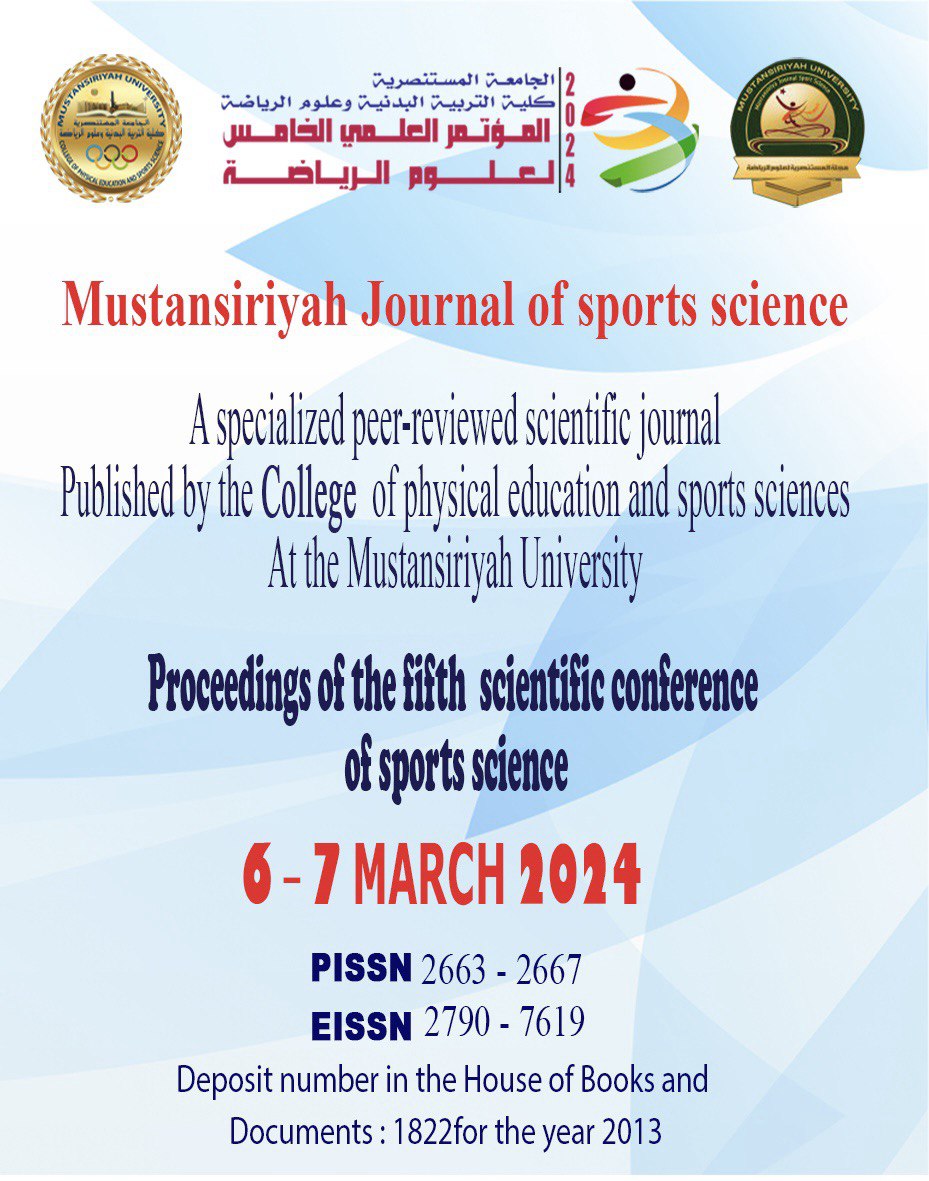The effect of the directed collaborative inquiry strategy on reflective thinking and learning the serving skill among students of the College of Physical Education and Sports Sciences / University of Wasit
Main Article Content
Abstract
The strategy of directed cooperative inquiry has a major role in the interaction between students through sensing the problem, identifying it, presenting it in the form of a question, showing pictures or a video about the skill in order to facilitate it, and examining the solution and the result, as theoretical information and the correct technical performance of the skill are applied in the practical situation by giving exercises. A variety that supports skills and helps them develop technical performance.
The importance of the research emerged by relying on the strategy of directed collaborative inquiry in reflective thinking and learning the skill of serving among students of the second stage. As for the problem of the research, there is a weakness in the performance of the skill of serving, for several reasons, including the difficulty of the sending skill, which requires employing methods and means through which the learning process is facilitated and which It makes the learning process a fruitful and purposeful process. The research aimed to identify the impact of the directed cooperative inquiry strategy on learning the skill of serving with volleyball for the students of the second stage, College of Physical Education and Sports Sciences, University of Wasit, and to build a measure of reflective thinking for the serving skill, and to prepare educational units with the strategy of directed cooperative inquiry for the serving skill. In volleyball, the experimental approach was adopted for two groups (experimental and control), and the boundaries of the research community are represented by the students of the second stage of the College of Physical Education and Sports Sciences, University of Wasit, continuing full-time for the academic year (2023-2024), amounting to (185) students. As for the measure of reflective thinking, it was dealt with in systematic steps. A series and several statistical treatments to be appropriate for the sample. Then the researchers prepared the educational units at a rate of one educational unit per week at a rate of (5) educational units for a month and a half. The researchers then verified the results used using the SPSS statistical package. The reflective thinking scale is a valid tool for measuring this. The indicator for the students of the second stage to achieve it under scientific conditions and in accordance with the determinants of measurement and evaluation. The researchers concluded that the application of the directed collaborative inquiry strategy had an impact on learning the skill of transmission through the improvement of their performance and their superiority over the control group, and the development that occurred in the students’ level and their commitment and continuation of the educational units and following the principle Gradual learning of the skill of serving, and the necessity of using the strategy of directed collaborative investigation in conducting research on individual and team games.
Downloads
Article Details

This work is licensed under a Creative Commons Attribution-NonCommercial 4.0 International License.

